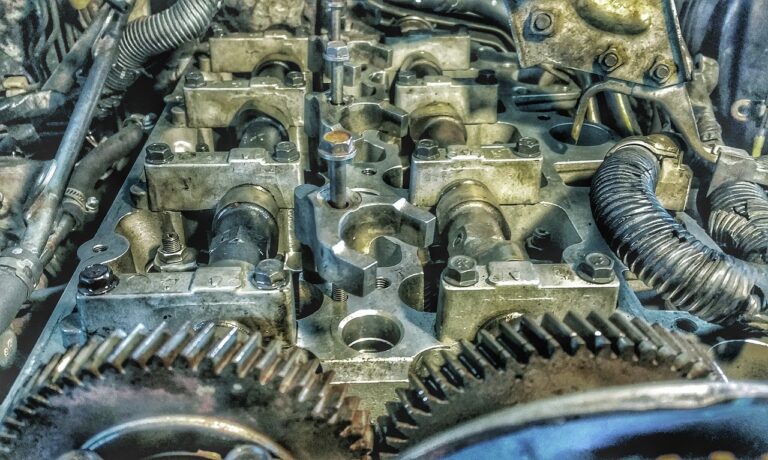Exploring the Role of Fuel System Component Failure Root Cause Analysis
my 99 exch, laser book 247 com registration, yolo247 club login:Fuel system component failure can lead to serious issues with your vehicle, from engine misfires to complete breakdowns. Understanding the root cause of these failures is crucial in preventing future problems and keeping your car running smoothly. In this article, we will explore the role of fuel system component failure root cause analysis and how it can help you maintain your vehicle properly.
What is fuel system component failure root cause analysis?
Fuel system component failure root cause analysis is the process of identifying and analyzing the underlying reasons for the failure of various fuel system components in a vehicle. This analysis involves examining the design, manufacturing, installation, and maintenance of these components to determine why they failed and what steps can be taken to prevent future failures.
Why is root cause analysis important?
Root cause analysis is essential in preventing recurring issues with your vehicle’s fuel system components. By identifying and addressing the underlying reasons for failures, you can take proactive steps to prevent similar problems from occurring in the future. This can save you time and money in the long run by avoiding costly repairs and breakdowns.
Common causes of fuel system component failure
There are several common reasons why fuel system components can fail, including:
1. Contaminated fuel: Dirt, debris, water, and other contaminants can enter the fuel system and cause damage to components such as fuel injectors and fuel pumps.
2. Corrosion: Corrosion can occur in the fuel system due to exposure to moisture, salt, or other corrosive substances, leading to the deterioration of components over time.
3. Wear and tear: Constant use and exposure to heat and friction can cause fuel system components to wear out and eventually fail.
4. Incorrect installation: Improper installation of fuel system components can lead to leaks, poor performance, and premature failure.
5. Lack of maintenance: Neglecting regular maintenance, such as fuel filter changes and fuel system cleanings, can result in the buildup of deposits and contaminants that can damage components.
6. Manufacturer defects: Defects in the design, materials, or construction of fuel system components can also contribute to failures.
The importance of conducting root cause analysis
Conducting root cause analysis is crucial in identifying the specific reasons for fuel system component failures and implementing effective solutions to prevent future issues. By examining the root causes of failures, you can address underlying problems and make informed decisions about repairs, maintenance, and replacement of components.
Steps to conduct root cause analysis
When conducting root cause analysis of fuel system component failures, it is essential to follow these steps:
1. Identify the problem: Determine which fuel system components have failed and the symptoms of the failure.
2. Gather information: Collect data on the maintenance history, driving conditions, and any recent repairs or modifications that may have contributed to the failure.
3. Analyze the data: Examine the information collected to identify potential causes of the failure, such as contamination, wear, or improper installation.
4. Conduct tests: Perform diagnostic tests on the fuel system components to confirm the root cause of the failure.
5. Develop a plan: Based on the analysis and test results, create a plan to address the root cause of the failure and prevent future issues.
6. Implement solutions: Take appropriate actions to repair or replace the failed components, address any underlying problems, and prevent similar failures in the future.
7. Monitor and evaluate: Regularly monitor the performance of the fuel system components and evaluate the effectiveness of the solutions implemented to prevent future failures.
By following these steps, you can effectively conduct root cause analysis of fuel system component failures and take proactive measures to maintain your vehicle’s performance and reliability.
FAQs
Q: How often should I conduct root cause analysis of fuel system component failures?
A: It is recommended to conduct root cause analysis whenever a fuel system component fails to prevent recurring issues and ensure the proper functioning of your vehicle.
Q: Can I conduct root cause analysis on my own, or should I seek professional help?
A: While some basic root cause analysis can be done by the vehicle owner, it is advisable to seek professional assistance for complex issues or if you are unsure about the underlying reasons for the failure.
Q: What are the benefits of conducting root cause analysis of fuel system component failures?
A: Root cause analysis can help you identify and address the specific reasons for failures, prevent future issues, save time and money on repairs, and improve the overall performance and reliability of your vehicle.
In conclusion, exploring the role of fuel system component failure root cause analysis is essential in maintaining your vehicle’s performance and preventing recurring issues. By conducting thorough analysis, identifying underlying reasons for failures, and implementing effective solutions, you can ensure that your fuel system components are functioning properly and avoid costly repairs and breakdowns. Remember to follow the steps outlined in this article and seek professional help if needed to conduct root cause analysis effectively.







